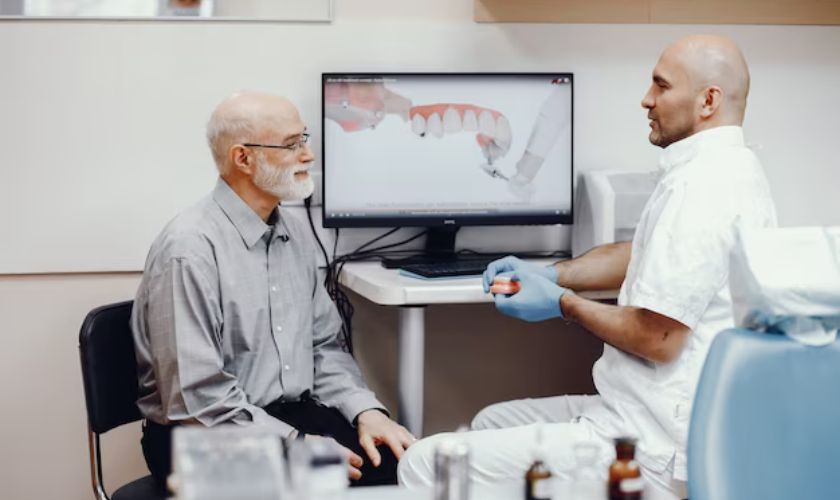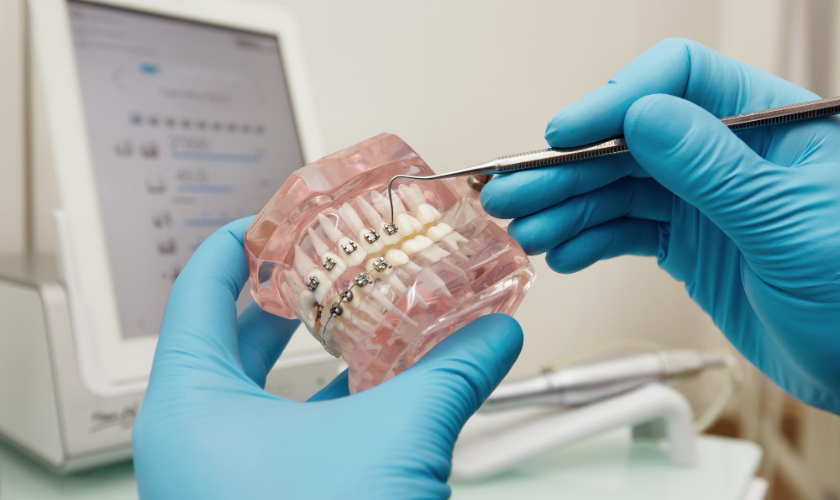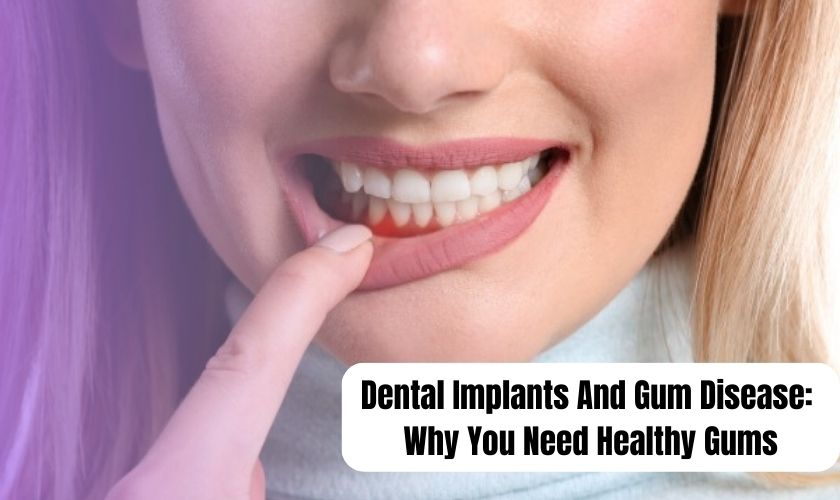Are you tired of hiding your smile because of missing teeth? Dental implants are the solution you’ve been searching for! With their natural look and feel, dental implants can restore your confidence and give you a perfect smile. But that’s not all – these remarkable tooth replacements offer a range of benefits beyond aesthetics. This blog post will explore five key advantages of dental implants beyond improving your appearance. From reducing anxiety to increasing life expectancy, discover why dental implants are the ultimate choice for achieving oral health and a radiant smile! So, let’s dive in and uncover the incredible benefits of dental implants that will leave you grinning from ear to ear!
Reducing Anxiety and Stress
Living with missing teeth can be a source of constant anxiety and stress for many people. The embarrassment of gaps in your smile can lead to self-consciousness, affecting your confidence in social situations and hindering your ability to express yourself freely. Fortunately, dental implants offer a solution beyond just restoring your smile – they also help alleviate the emotional burden associated with tooth loss.
One of the primary ways that dental implants reduce anxiety is by providing a permanent solution. Unlike dentures or bridges, which may need to be replaced over time, dental implants are designed to last a lifetime with proper care. This means you don’t have to worry about the inconvenience and uncertainty of constantly replacing or adjusting them.
Another way that dental implants can ease anxiety is by improving chewing function. Missing teeth can make it difficult to enjoy certain foods and limit your dietary choices. With dental implants firmly anchored into your jawbone, you can confidently bite into those crunchy apples or chew on delicious steak without any worries.
So if you’re tired of feeling anxious about missing teeth holding you back from fully enjoying life’s precious moments, consider getting dental implants for long-term peace of mind and increased confidence.
Improved Appearance
A primary advantage of these replacements is the notable enhancement they can bring to your overall look. When you experience gaps in your teeth, it can considerably impact your self-assurance and your perception of your smile. These alternatives offer an authentic-looking remedy that can renew your smile and elevate your facial attractiveness.
Unlike other tooth replacement options, such as dentures or bridges, dental implants are designed to mimic the look and function of natural teeth. They are custom-made to match the color, shape, and size of your existing teeth, ensuring a seamless integration with your smile.
With dental implants, you no longer have to worry about gaps in your mouth or loose-fitting prosthetics that may slip when speaking or eating. The implant-supported crowns blend seamlessly with surrounding teeth, giving you a beautiful and symmetrical smile.
Furthermore, these replacements play a role in averting bone depletion in the jaw region. This is because the absence of a tooth leads to gradual degradation of the underlying jawbone due to inadequate activation. Alternatives to natural teeth, mimic artificial tooth roots and encourage jawbone stimulation similar to natural teeth.
By preserving bone density in the jaw area and maintaining proper facial structure, dental implants can help prevent premature aging often associated with missing teeth.
Improved appearance enhances self-esteem and positively affects social interactions and professional opportunities. Dental implants provide a permanent solution for replacing missing teeth effectively without compromising aesthetics or functionality!
Improved Speech
One of the most noticeable benefits of dental implants is the improvement in speech. When you have missing teeth, it can affect your ability to pronounce certain words correctly or speak clearly. This can lead to embarrassment and frustration in social situations.
Replacement teeth gain a steadfast and reliable base through which you can speak with assurance. Unlike detachable dentures that might shift or produce sounds during speech, these replacements find solid stability and backing within your jawbone.
With dental implants, you don’t have to worry about slurring or mumbling words due to ill-fitting dentures. Implant-supported teeth’ natural look and feel allow for clear pronunciation and improved articulation.
Moreover, the presence of these replacements aids in preserving the correct gaps between teeth, adding to improved clarity in speech. These fill the voids resulting from absent teeth, inhibiting nearby teeth from moving and causing speech challenges due to misalignment.
In addition to restoring your smile’s aesthetics, dental implants offer functional benefits that enhance your overall quality of life – including improved speech!
So why let missing teeth hinder your ability to communicate effectively? Consider dental implants a long-term solution that can help improve your smile and boost your self-confidence when speaking!
Reduced Gum Disease Risk
Gum or periodontal disease is a common dental issue affecting millions worldwide. It occurs when the gums become inflamed and infected due to bacteria buildup. Gum disease can lead to tooth loss and other serious oral health problems if left untreated.
An advantage of these replacements is their potential to lower the likelihood of gum disease progression. In contrast to conventional dentures or bridges resting on the gums’ surface, these alternatives are surgically inserted within the jawbone. This establishes a secure base for new teeth and encourages bone development, aiding in the preservation of robust gum tissue.
In addition, because dental implants are made from biocompatible materials like titanium, they do not promote bacterial growth or irritate your gums. This reduces the likelihood of inflammation and infection in your mouth.
Choosing dental implants over other tooth replacement options can significantly lower your risk of developing gum disease and ensure better long-term oral health. Don’t let gum problems hold you back from achieving a beautiful smile!
Increased Life Expectancy
One of the lesser-known benefits of dental implants is their positive impact on overall health and increased life expectancy. When you have missing teeth, it can lead to a decline in oral health that affects your entire body. The empty spaces left by missing teeth can cause the surrounding teeth to shift, leading to misalignment and bite problems. This can result in jaw pain, headaches, and even TMJ disorder.
However, with dental implants, these issues are effectively addressed. Replacing missing teeth with implants restores proper alignment and prevents further complications. Not only does this improve your oral health, but it also reduces the risk of developing other serious conditions, such as heart disease and diabetes.
Moreover, upkeeping proper oral hygiene is simplified with the presence of teeth replacements. Unlike dentures or bridges mandating distinct cleaning techniques or the need for detachment during cleaning, these replacements emulate natural teeth. You can carry out routine brushing and flossing with ease.
By investing in dental implants for a perfect smile, you are not only enhancing your appearance but also improving your overall well-being. With reduced anxiety and stress levels, improved speech clarity, decreased risk of gum disease, and an increased life expectancy, dental implants undoubtedly offer remarkable benefits beyond aesthetics.
So why wait? Consult a qualified dentist today to explore if dental implant treatment is right for you! Reap all these incredible advantages while enjoying a confident smile that lasts a lifetime!
Remember: Your smile matters because it’s an important reflection of who you are!









